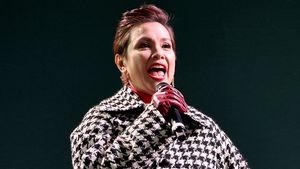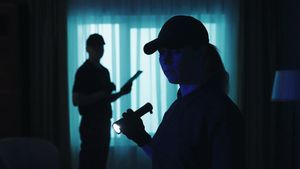 Oxygen's new show The Prancing Elites Project is garnering a lot of attention and eliciting mixed emotions. The reality series centers on a group of young black gay men and one trans woman in rural Alabama whose shared dream is to dance.
Oxygen's new show The Prancing Elites Project is garnering a lot of attention and eliciting mixed emotions. The reality series centers on a group of young black gay men and one trans woman in rural Alabama whose shared dream is to dance.
Sounds simple enough. But this show is definitely pushing the proverbial "reality envelope." This group's dance of choice is not ballet or even traditional hip-hop. They specialize in J-Setting, a form of dance that originated at historically black colleges and universities, which is characterized by cheerleading movements with a hip-hop influence and performed in a tightly choreographed routine in outfits traditionally characterized as feminine.
 When I was first introduced to the show's concept and the cast, I was excited and overcome with joy. Five LGBT young people of color had received the opportunity to display a part of our community on a national platform, which rarely happens.
When I was first introduced to the show's concept and the cast, I was excited and overcome with joy. Five LGBT young people of color had received the opportunity to display a part of our community on a national platform, which rarely happens.
As one of the first African-Americans to be out on a reality program, MTV's The Real World: Philadelphia, I understand the courage it takes to live your truth on a national platform, the importance it holds to LGBT communities of color, and the power it has to create a greater conversation within American culture.
But unfortunately, LGBT people, and especially LGBT people of color, are still fighting for visibility in the media. Since 1973 there have only been 562 out LGBT cast members on reality TV programing in the U.S. and U.K. combined. LGBT African-American cast members make up less than 10 percent of that figure. This number is small in proportion to the thousands that have been cast or participated on reality TV programs.
 More African-Americans identify as LGBT than any other race or ethnic group. According to a recent Gallup poll, 4.6 percent of African-Americans identify as LGBT, compared to 4.3 percent of Hispanics, 3.2 percent of Asians, and 3.2 percent of Caucasians. Yet we are the least represented in national media. Thus I applaud these young people for stepping up to share their truth while prancing into our hearts.
More African-Americans identify as LGBT than any other race or ethnic group. According to a recent Gallup poll, 4.6 percent of African-Americans identify as LGBT, compared to 4.3 percent of Hispanics, 3.2 percent of Asians, and 3.2 percent of Caucasians. Yet we are the least represented in national media. Thus I applaud these young people for stepping up to share their truth while prancing into our hearts.
Unfortunately, I realized that I was one of a small minority in the black community cheering from the stands for this show and cast to succeed. I began seeing tweets from both straight and gay African-Americans that were downright disrespectful.
These social media posts include comments like "We need a strong black male presence in the media and y'all show this,"and "Real black man ... these aren't real black men,"and lastly, "Why don't I see any white faggs ... smh trying to bury a real black man."
I was confused. Why were these young people receiving so much hate, when those same individuals tweeting these ugly tweets 10 years earlier, and even now, only greet me with love and support as I continue to share my truth on national TV?
 Then it dawned on me. This is the internal struggle of the LGBT community and also the unspoken struggle within the black community that was rearing its ugly head. I'm speaking of condemning our more "spirited" or "effeminate" brothers for just being themselves -- masculinity versus femininity, and what is perceived to be better. This is something that I witnessed firsthand on my season of MTV's Real World, when the public tried to pit me and my gay housemate against each other just because of "how we acted." It's a sad and disgusting truth that needs to be faced.
Then it dawned on me. This is the internal struggle of the LGBT community and also the unspoken struggle within the black community that was rearing its ugly head. I'm speaking of condemning our more "spirited" or "effeminate" brothers for just being themselves -- masculinity versus femininity, and what is perceived to be better. This is something that I witnessed firsthand on my season of MTV's Real World, when the public tried to pit me and my gay housemate against each other just because of "how we acted." It's a sad and disgusting truth that needs to be faced.
The black community can be competitive and cautious when it comes to those we want put on display for the world to see and judge. We are a prideful people who believe that anything that will make us seem "less than" should be hidden. The current view is, it's OK if Chris is gay, as long as he "acts like a man." But if he exhibits any "female characteristics," then there's a problem.

The perpetuation of family and cultural pressures to conform to prescribed masculine behaviors is what creates social isolation and distress in many young gay and trans people of color. This can drive them to seek approval and acceptance through perilous sexual behavior.
What defines someone as a "man" should not be the clothes they wear or how deep their voice is. It should be the content of his character, his strength in the face of overwhelming adversity, and his ability to still love and help others when the world has turned its back on him.
help others when the world has turned its back on him.
These four young men and one trans woman are the epitome of strength, courage, and the resilience birthed in us from our forefathers who never gave up. Instead of knocking them down or questioning their relevance in the media, we need to be thankful for their bravery and lift them up to success. Just as my image helped opened the door for them to have a show, their success will open another door for someone else to show a different side of our community that may currently be judged as irrelevant or shameful.
KARAMO BROWN is a former cast member of MTV's The Real World.Follow him on Twitter @KaramoBrown.
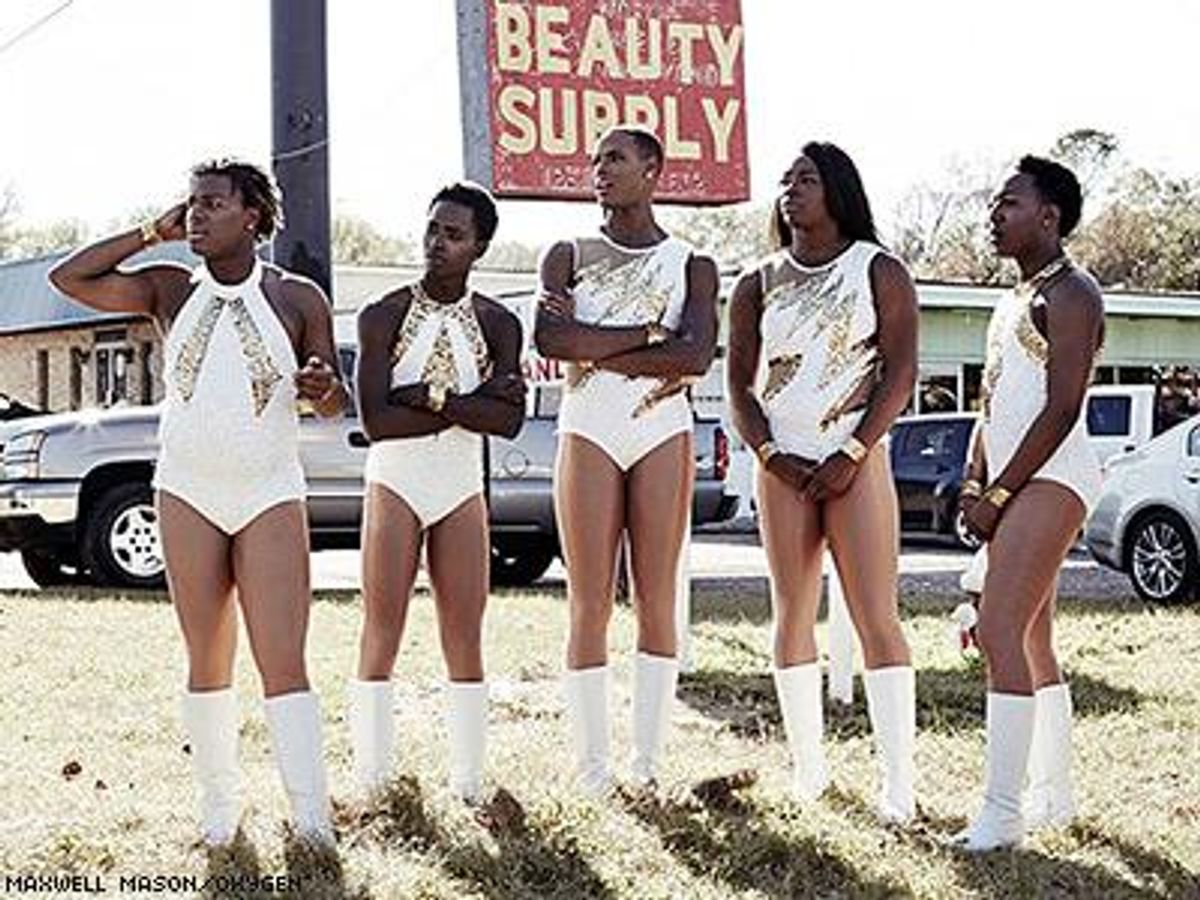

 Oxygen's new show The Prancing Elites Project is garnering a lot of attention and eliciting mixed emotions. The reality series centers on a group of young black gay men and one trans woman in rural Alabama whose shared dream is to dance.
Oxygen's new show The Prancing Elites Project is garnering a lot of attention and eliciting mixed emotions. The reality series centers on a group of young black gay men and one trans woman in rural Alabama whose shared dream is to dance. When I was first introduced to the show's concept and the cast, I was excited and overcome with joy. Five LGBT young people of color had received the opportunity to display a part of our community on a national platform, which rarely happens.
When I was first introduced to the show's concept and the cast, I was excited and overcome with joy. Five LGBT young people of color had received the opportunity to display a part of our community on a national platform, which rarely happens.




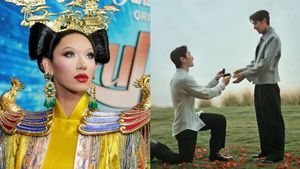

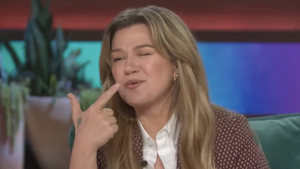



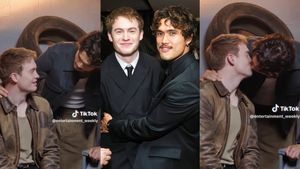













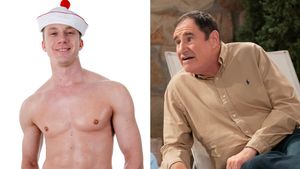


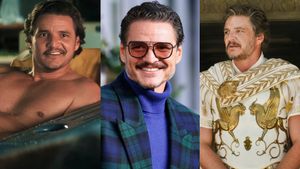

 More African-Americans identify as LGBT than any other race or ethnic group. According to a recent Gallup poll, 4.6 percent of African-Americans identify as LGBT, compared to 4.3 percent of Hispanics, 3.2 percent of Asians, and 3.2 percent of Caucasians. Yet we are the least represented in national media. Thus I applaud these young people for stepping up to share their truth while prancing into our hearts.
More African-Americans identify as LGBT than any other race or ethnic group. According to a recent Gallup poll, 4.6 percent of African-Americans identify as LGBT, compared to 4.3 percent of Hispanics, 3.2 percent of Asians, and 3.2 percent of Caucasians. Yet we are the least represented in national media. Thus I applaud these young people for stepping up to share their truth while prancing into our hearts. Then it dawned on me. This is the internal struggle of the LGBT community and also the unspoken struggle within the black community that was rearing its ugly head. I'm speaking of condemning our more "spirited" or "effeminate" brothers for just being themselves -- masculinity versus femininity, and what is perceived to be better. This is something that I witnessed firsthand on my season of MTV's Real World, when the public tried to pit me and my gay housemate against each other just because of "how we acted." It's a sad and disgusting truth that needs to be faced.
Then it dawned on me. This is the internal struggle of the LGBT community and also the unspoken struggle within the black community that was rearing its ugly head. I'm speaking of condemning our more "spirited" or "effeminate" brothers for just being themselves -- masculinity versus femininity, and what is perceived to be better. This is something that I witnessed firsthand on my season of MTV's Real World, when the public tried to pit me and my gay housemate against each other just because of "how we acted." It's a sad and disgusting truth that needs to be faced.
 help others when the world has turned its back on him.
help others when the world has turned its back on him.








